What to do with all this citrus?!
So you grabbed a few too many extra oranges and grapefruits and lemons (and some finger limes, and some satsumas…), and rather than watch them go bad, we want to provide you with some ideas on how to reduce waste. You’ll also get to enjoy citrus in a lot of new ways!
There are many guides and recipes across the internet (like this one by our friends at Grow Forage Cook Ferment), so here are a few ideas to get your creative and citrus juices flowing.
This is too much citrus to eat! How can I preserve them?
-
Margaritas, anyone?
Juice your limes (or grapefruits if you’re into palomas), put the juice into a container in your freezer, and you’re ready for Cinco de Mayo (or just 5pm).
-
Citrus curd
Zest your citrus, then juice it, mix in some sugar, eggs, and butter and you’ve now got a tangy, sweet pudding-like treat to use as a topping or to eat by the spoonful.
-
Salted/fermented citrus
This is a unique way to preserve extra citrus. Salted citrus (also known as preserved citrus) is very useful in cooking, especially for North African dishes like tagines.
-
Dehydrating
Great for trail mixes, baking, or a snack on its own, dehydrating citrus is a low-labor way to use those extras.
-
Then there are the classic options: freeze lemon or lime juice for homemade lemonade in the summer; create a marmalade or preserves; make a lemon bar (or try a different citrus); or peel, segment and can your citrus.
Don’t throw it away! Ways to reduce waste
-
Candied peels
For a homemade sugary treat, all you need is your citrus peels, sugar, water and a saucepan for boiling. Works great for all citrus types.
-
Cooking zest
Citrus zest keeps very well for future recipes, whether it’s frozen or dried. Make sure you’ve got a good microplane (cheese shredders work in a pinch, too) and start zesting!
-
Vitamin C powder
Did you know the peel of an orange has almost twice as much vitamin C as the same amount of orange fruit? Take your peels and dry them out (on your counter or in a dehydrator), then when they’re extra crispy pulverize them in a blender or grinder.
-
Freshen up the home
Boil some peels with a mix of water and spices (like cinnamon or allspice) to fill your house with a fresh winter scent.
-
Cleaner
Take peels OR post-juicing fruit pulp, fully submerge in vinegar for ~2 weeks, then strain and dilute 50/50 with water. Add this mixture to a spray bottle and you’ve got a fresh, all-natural cleaner! (Advanced level: create a citrus enzyme cleaner by fermenting the peels/waste. A web search will bring up several recipes.)
-
A few other options: mix peels with alcohol then do some straining and evaporating to create citrus essential oil; use that essential oil or excess lemon juice to create your own Goo Gone; add peels to your trash can or garbage disposal for an easy deodorizer; submerge peels in vodka for 4 days to a month, strain and mix with simple syrup (or citrus syrup!) for homemade limoncello or triple sec.
More Co-op News
Choose To Reuse
by Rianna Koppel, Co-op Sustainability Coordinator
At the Ashland Food Co-op, we are committed to becoming Zero Waste by 2030. Along the way, we’ve learned a lot about packaging and single-use at our store. Our owners care deeply about reducing plastic waste, and we do too!
Reusable Bags
At the co-op, we have many different bag options… So what's the best choice?
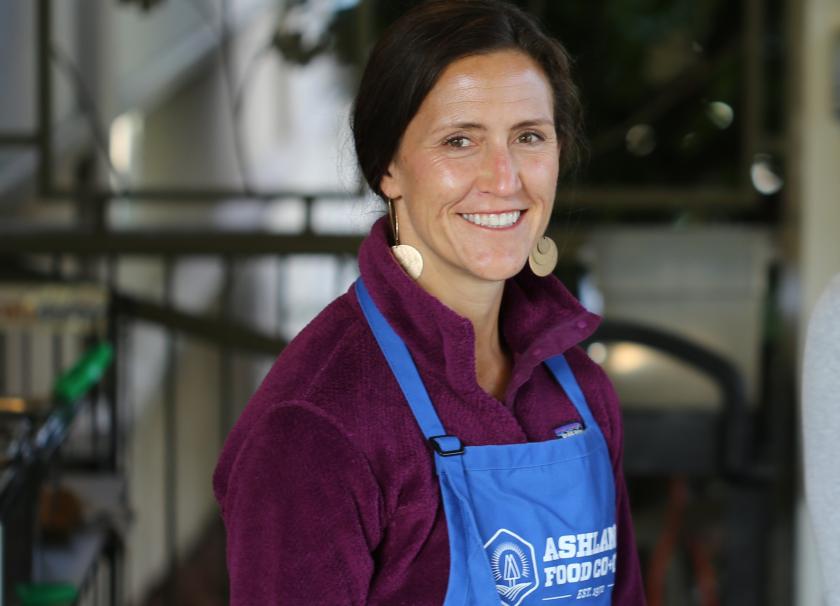
Lisa Beam: Why I'm a Board Member
Why serve on the Board of Directors at the Ashland Food Coop? This was the question that I was faced with about a year ago.
I have lived, worked and shopped in Ashland for the last 20 years. Many of those years I have actively participated on non-profit boards, civic organizations and committees. However, in the last few years I stepped away from those responsibilities to focus on family and business life.
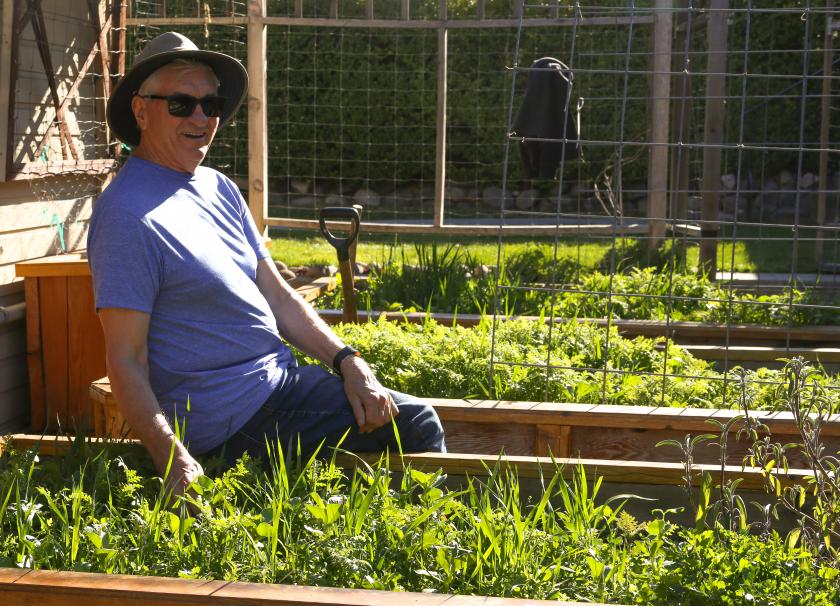
Henry in the Garden: The Pollinator Plan
By Henry Herting, Co-op garden volunteer
It's that fun time of the year when we get to plan our gardens. This year since our pollinators are taking such a hard hit, we are planning a pollinator garden.
Some plants that are considered good for pollinators are not so good fo the gardeners. They are invasive; they are weeds. Nobody likes weeds in their garden - who likes getting down on their knee pads and clawing at deep-rooted weeds growing in places where you don't want them?

Rogue To Go at the Co-op
We are excited to announce the official launch of Rogue To Go at the Ashland Food Co-op!
Rogue To Go is a reusable container pilot program. The pilot connects five participating restaurants by offering a reusable container that can be used for meals to-go and help eliminate single-use boxes. These O2GO containers are made locally in Bend, Oregon by OZZI. The bright green containers are 100% recyclable through a specialty recycler - truly zero waste!
How can you start using Rogue To Go? Check out the steps below and follow along with a walk-through video.

Apply for an AFC Gives community grant
For over 25 years, the Ashland Food Co-op has been re-investing in the local community by awarding grants to non-profit organizations doing important work in the Rogue Valley. Putting the seventh cooperative principle, "concern for community," into action, over $30,000 was donated in 2019 - and in 2020, there are even more opportunities for non-profits.
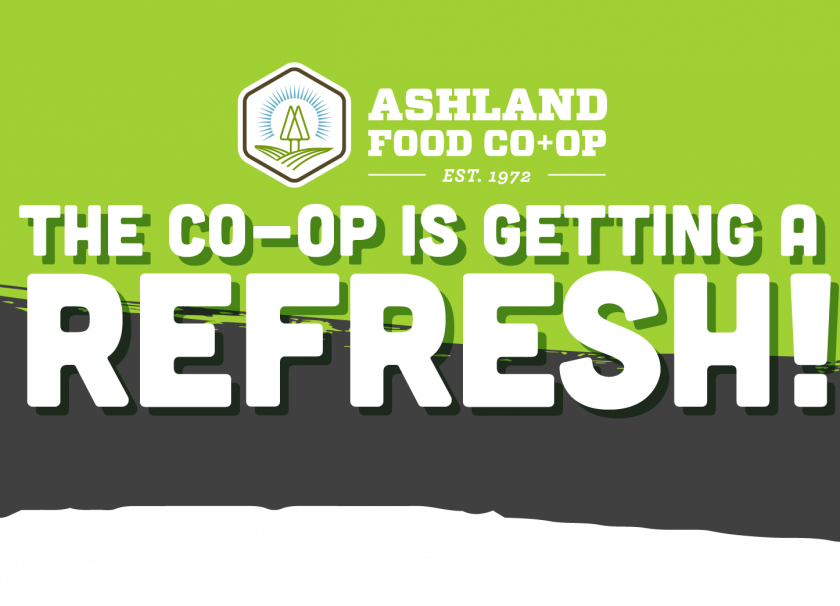
The Co-op is getting a refresh
We are giving our store a much-needed fresh coat of paint. We think you'll enjoy the changes!
When
The painting team will begin our project on February 5th, 2020 with a start time of 9pm.
Where
The entire retail store, deli serving area and interior seating area will receive a fresh new coat of paint.
Timeline
If all goes as planned, our painting project should be finished by February 20.
Will Store Hours Change?
No. We will be painting from 9pm to 5am.
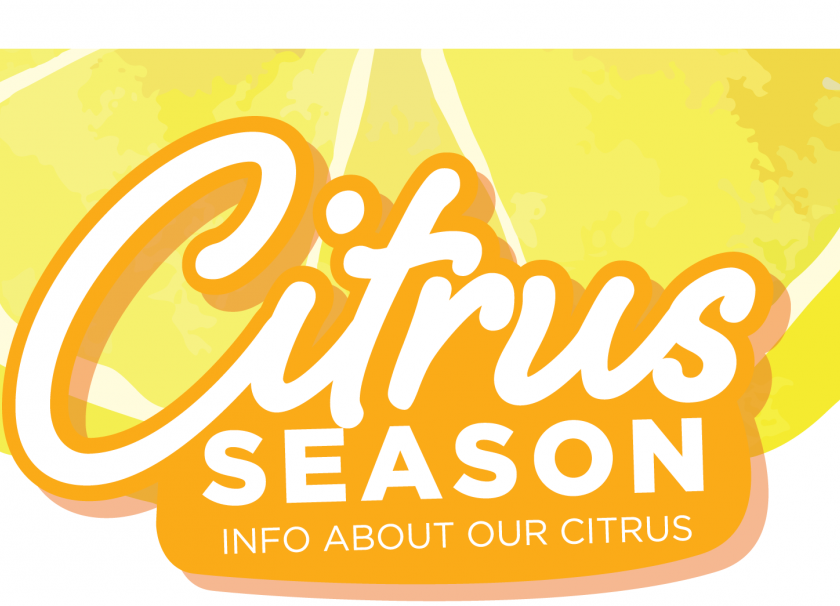
Explore citrus!
Looking to explore some new citrus varieties? Know more before you go! Check out the many types of sweet, sour and somewhere in between that you can enjoy at the Co-op! (Availability may vary due to seasonality.)
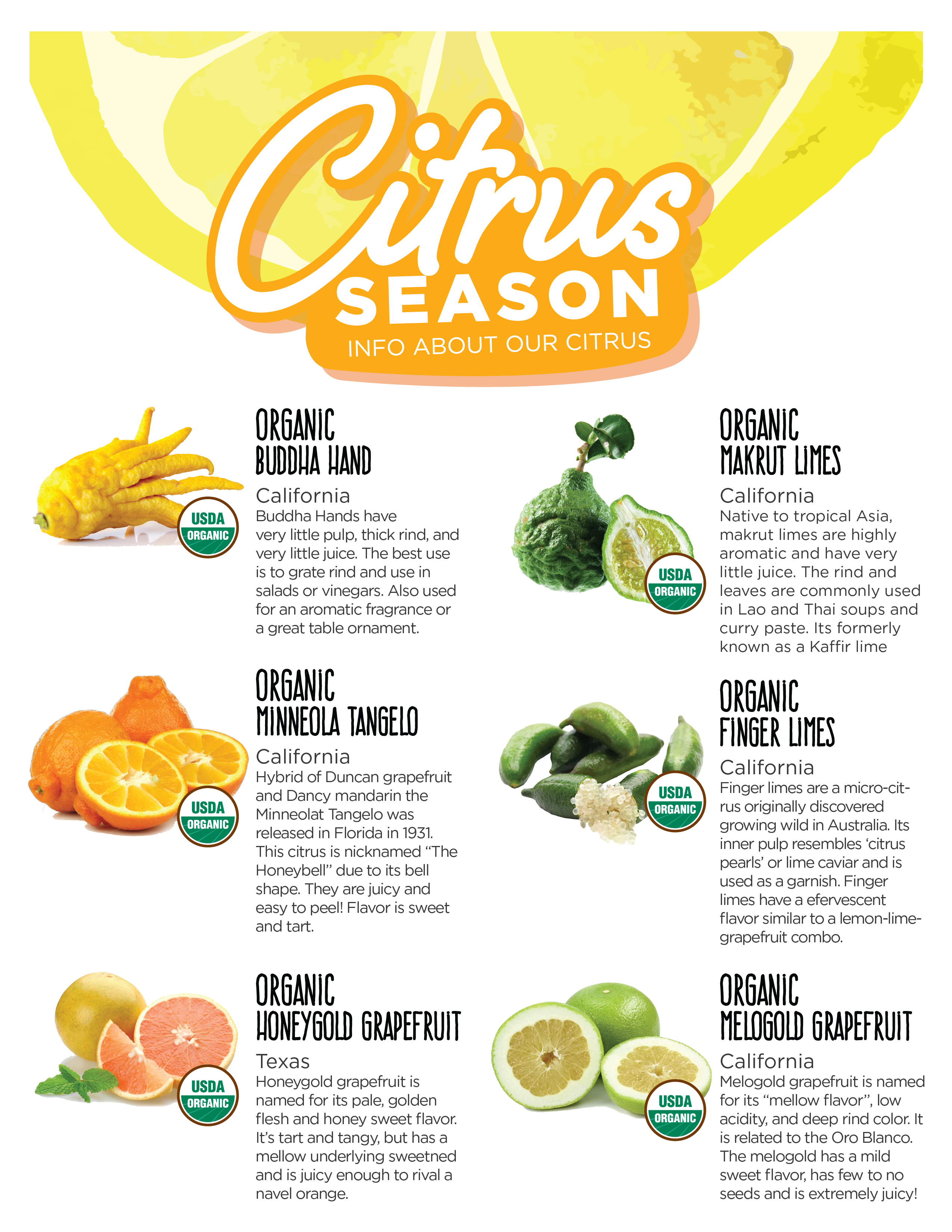
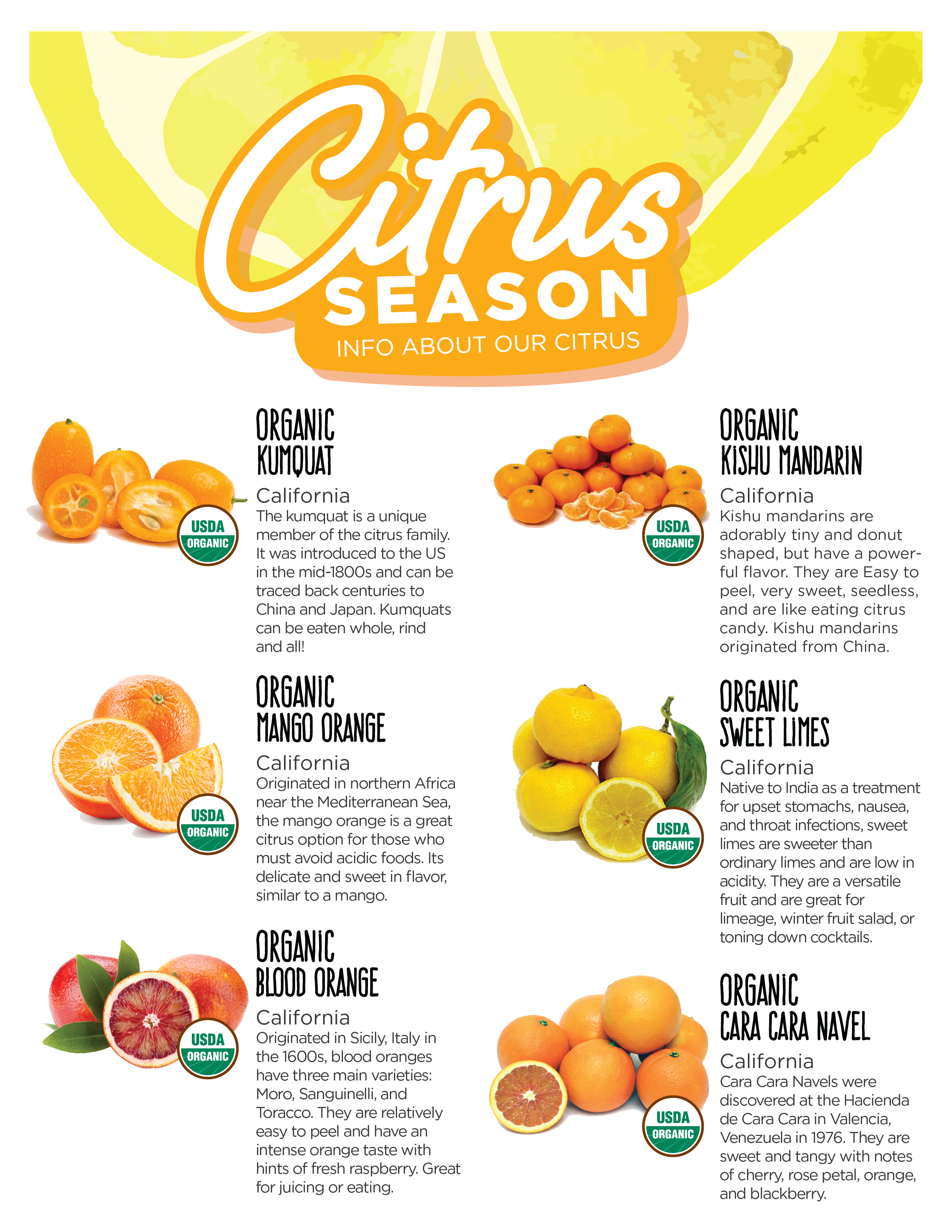
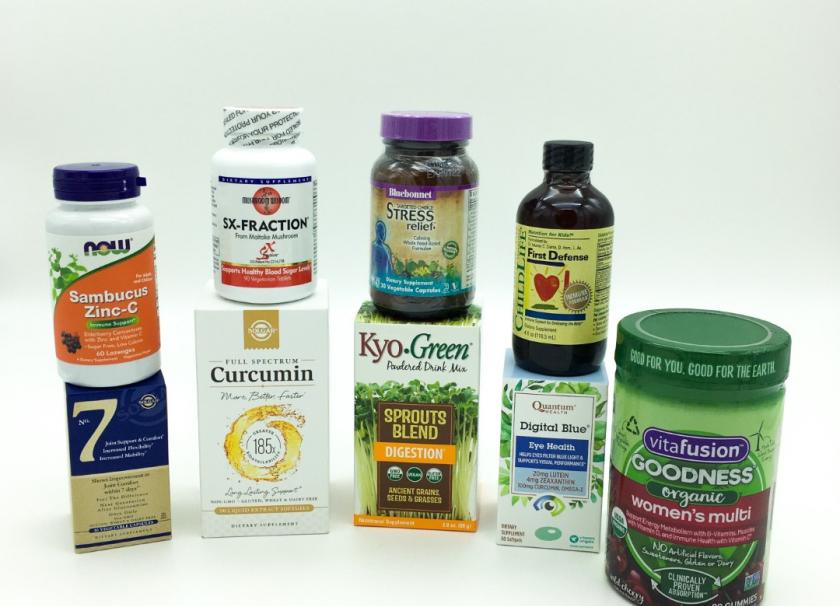
Taste for Life winter wellness giveaway
It's a month of giveaways from Taste for Life!
Giveaway #1 has finished up - so it's time for #2! This giveaway runs 1/27-2/2, so sign up below.
This package includes: NOW's Sabucus Zinc-C lozenges, Mushroom Wisdom's SX-Fraction, Bluebonnet's Stress Release formula, ChildLife's First Defense immune formula, Vitafusion's Organic Women's Multi vitamin, Quantum Health's Eye Health supplement, Kyo-Green Sprouts Blend digestion supplement, Solgar's full spectrum Curcumin supplement, and Solgar's No. 7 joint comfort supplement.

Rogue Co-ops College Scholarship
As part of the Rogue Co-ops, a group of Rogue Valley cooperative businesses that includes Ashland Food Co-op, Grange Co-op, Medford Food Co-op, and Rogue Credit Union, we're excited to offer a scholarship opportunity to local high school students planning on attending college.
The Rogue Co-ops have collectively funded a $2,000 scholarship (and Grange Co-op offers an additional eight $1,500 scholarships) for students (in public, private or home school settings) who meet the following requirements:

Become an Owner-Volunteer with the AFC Board
The AFC Board of Directors is looking for owner-volunteers for three board committees: the Owner Engagement Committee (OEC), Board Development Committee (BDC), and AFC Gives Committee.
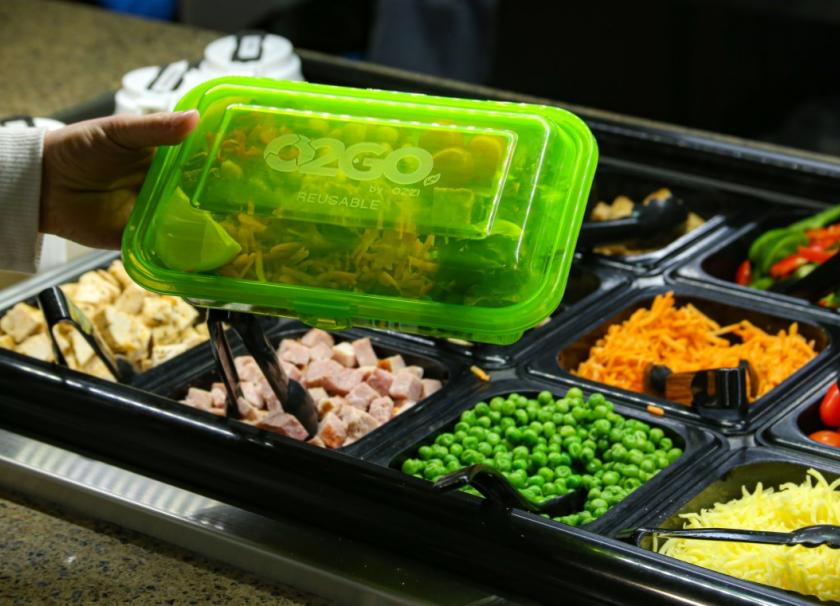
Sustainability Update: Building on a Strong Foundation
Sustainability Update
Our team has been working on many different projects throughout the year, taking great steps to fulfill our four sustainability goals. Our four goals to achieve by 2030 are: carbon neutrality, zero waste, eliminating toxic chemicals, and being a leader in our sustainable community. We look forward to our sustainable success in the upcoming decade!

2020: A vision for the future through Co-ops and local food
As the 2010s come to a close, the “20/20” eyesight analogy couldn’t be more appropriate for the new decade. With our eye on the future, there’s clearly a sense of urgency and awareness of the unique times we’re living in: a changing climate, increases in costs of living, and the shared pressures of a globalized world.
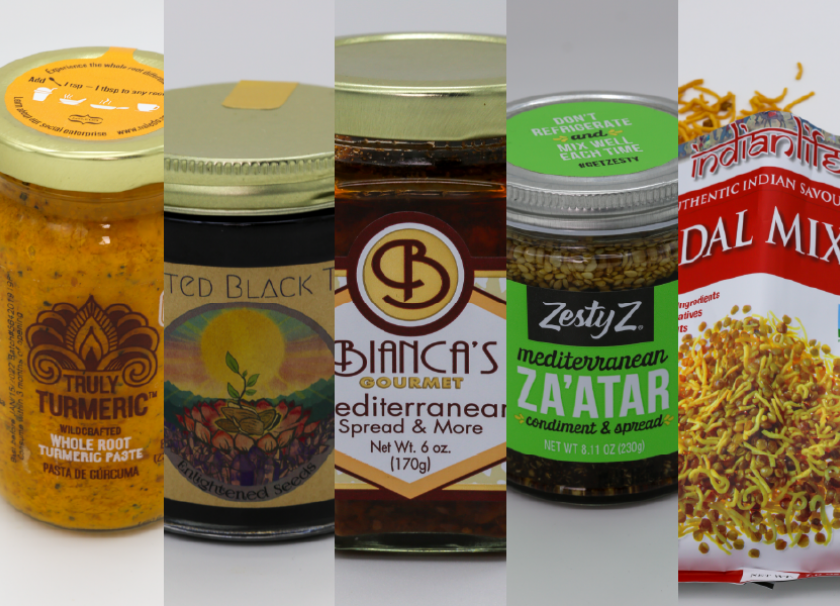
5 Items to Try: Spreads, Condiments & Snacks
It's fun trying new things! Here are five items you can find at the Co-op with a distinctly international flavor. Whether you're spreading them on some bread or naan, mixing up a salad dressing, or just want something salty and crunchy to snack on, try these out next time you want to elevate your dishes.
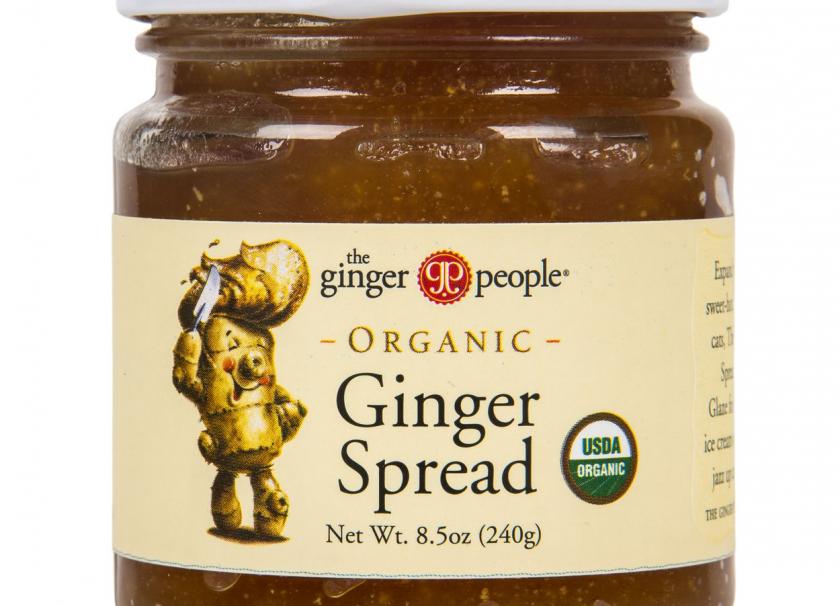
10 Ways to Enjoy: Ginger Spread
Sometimes you might come across a product at the Co-op and ask, "That looks good, but how in the heck can I use it in my cooking?" To answer that question, we picked this Ginger Spread made by The Ginger People (famous for their Gin-Gin candies). Grab a jar and try some of these unique applications in your own kitchen - or get inspired to utilize it in another way.

Meet Your Board: Melina Barker
Hello, Co-op members! My name is Melina Barker, and I joined the AFC Board of Directors this July. Since then, I have been busy learning about all the work the previous members have done to craft strategic goals to support the success of the AFC.
